At 12:00 noon local time on May 30th, the inauguration ceremony for the Confucius Institute at the University of Salamanca took place. This collaborative endeavor between Guizhou University and the University of Salamanca in Spain was formally launched at the latter's campus. Yang Wei, Secretary of Party Committee of Guizhou University led the delegation at the event.
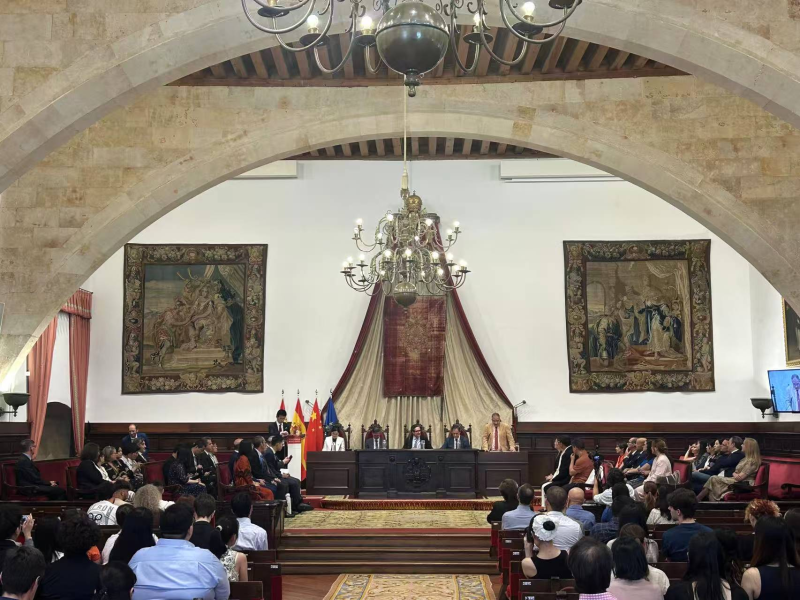
The unveiling ceremony began with opening remarks by Goichado, President of the University of Salamanca, followed by successive addresses from Sanchez, Vice President of the University of Salamanca, Yang Wei, Party Secretary from Guizhou University, Garcia, Mayor of Salamanca, and Chinese Ambassador Yao Jing. Attendees included Xu Jinjing, Foreign Director of the Confucius Institute at the University of Salamanca, Lin Zao, Chinese Director, representatives from other Confucius Institutes in Spain and Portugal, and approximately one hundred faculty and student representatives from the University of Salamanca.
Sanchez, Vice President of the University of Salamanca affirmed the Confucius Institute as a vital platform fostering cooperation and exchange between the University of Salamanca and Guizhou University. Furthermore, Sanchez expressed optimism for deepened collaboration across diverse fields, including language acquisition and scholarly interchange between the two universities.
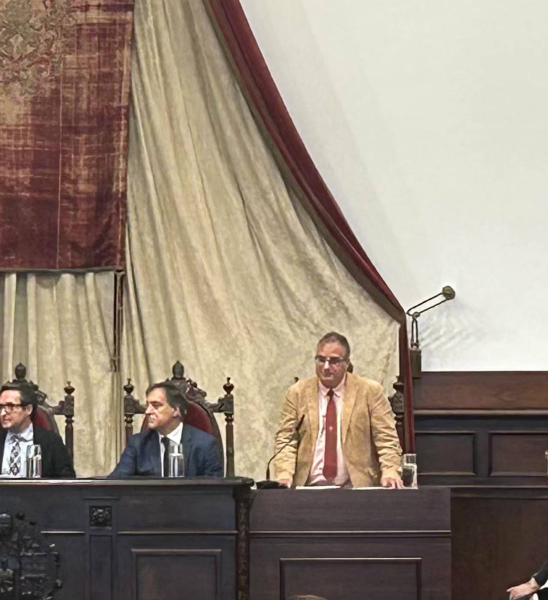
In her address at the ceremony, Party Secretary Yang Wei characterized the establishment of the Confucius Institute at the University of Salamanca as a "zero breakthrough" for Guizhou Province regarding the establishment of such institutes in Europe. Beyond representing the third overseas international Chinese language education base for Guizhou University, it signifies a landmark achievement for the province in its efforts to enhance external openness and actively participate in the Belt and Road Initiative. Yang Wei highlighted the reciprocal appeal and complementary nature of Chinese and Spanish civilizations, framing the collaboration between the University of Salamanca and Guizhou University as an embodiment of the ancient adage, "Voices of the same kind respond to each other; spirits of the same kind attract each other." She presented this partnership as both a convergence of educational objectives and a concrete instantiation of the concept of a shared future for humanity. Yang Wei concluded by expressing her aspiration that the two universities leverage the Confucius Institute as a conduit for fostering a more profound exchange of civilizations, employing language as a vessel and culture as its sails to collaboratively forge a novel era for Confucius Institutes, one characterized by mutual appreciation and shared understanding of diverse cultural beauty.
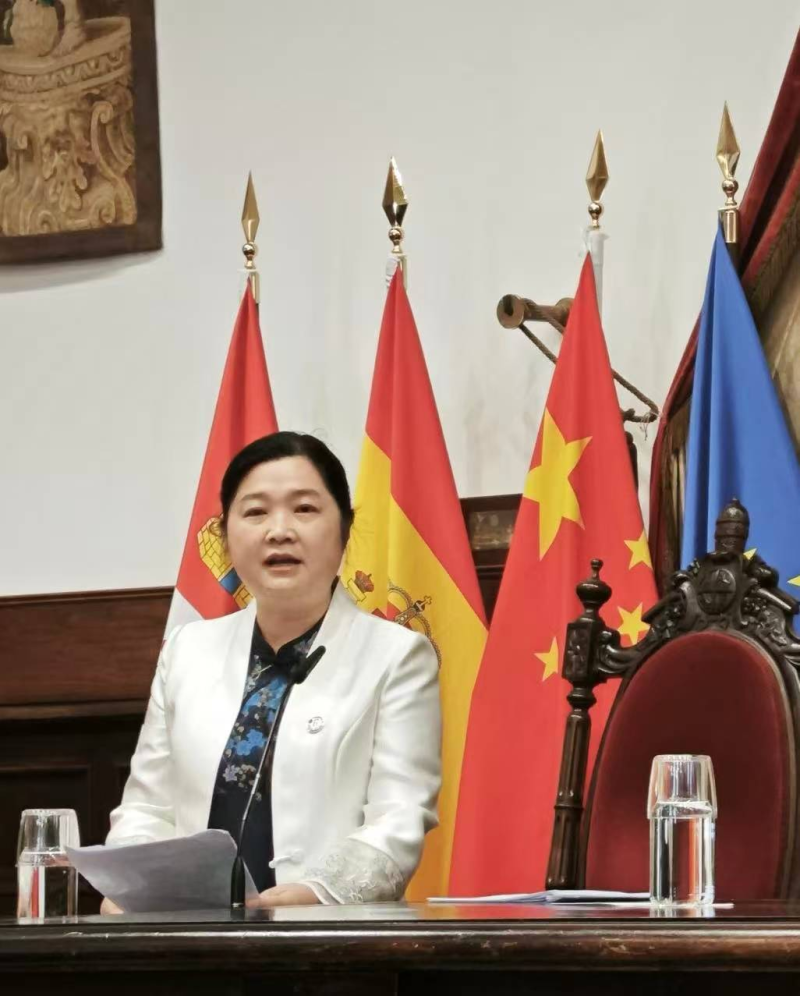
Mayor García of Salamanca, in his address, articulated his aspiration for the Confucius Institute at the University of Salamanca to serve as a nexus for Sino-Spanish cultural interchange. He envisioned the Institute as a collaborative forum for knowledge dissemination and cultural exchange, facilitating a robust dialogue between China and Spain through diverse and engaging cultural initiatives.
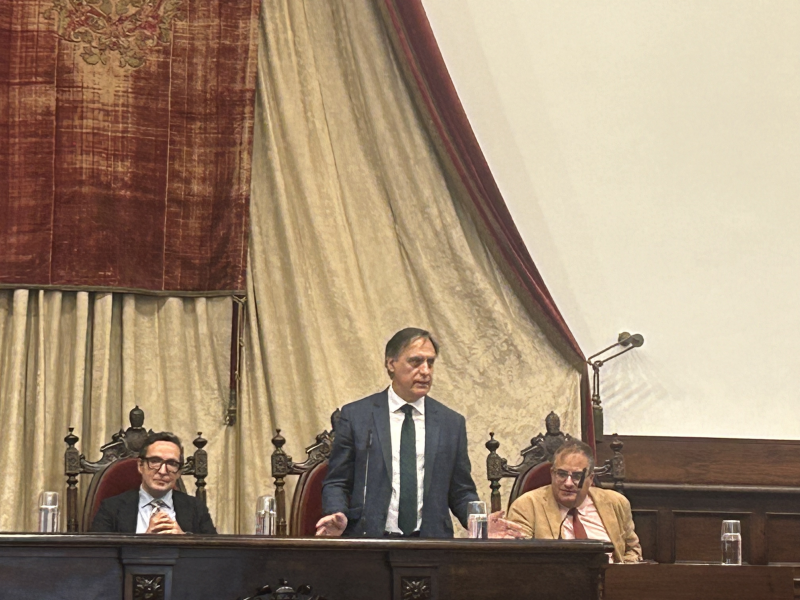
In a formal address, Chinese Ambassador to Spain, Yao Jing, conveyed the Chinese Embassy's felicitations on the inauguration of the Confucius Institute at the University of Salamanca. He underscored the Institute's significance as a testament to Sino-Spanish cultural exchange and expressed his hope that it would evolve into a comprehensive platform for academic collaboration and regional partnership between Salamanca and Guizhou Province, thereby fostering deeper bilateral ties.
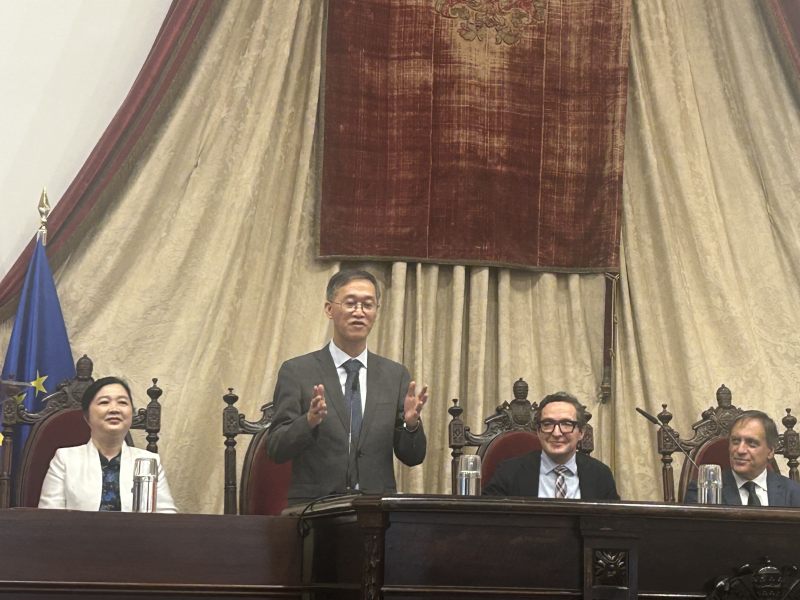
President Goicholea of the University of Salamanca extended a gracious welcome to attendees of the Confucius Institute's inauguration ceremony, characterizing the occasion as a landmark achievement in fostering enhanced educational and cultural exchange, mutual understanding, and strengthened amity between China and Spain. He affirmed that the collaborative support of both Guizhou University and the University of Salamanca would enable the Confucius Institute to effectively promote the learning and teaching of the Chinese language, disseminate Chinese culture, facilitate Sino-Spanish cultural and educational interchanges within Spain, and ultimately serve as a conduit for amicable cooperation between the two nations.
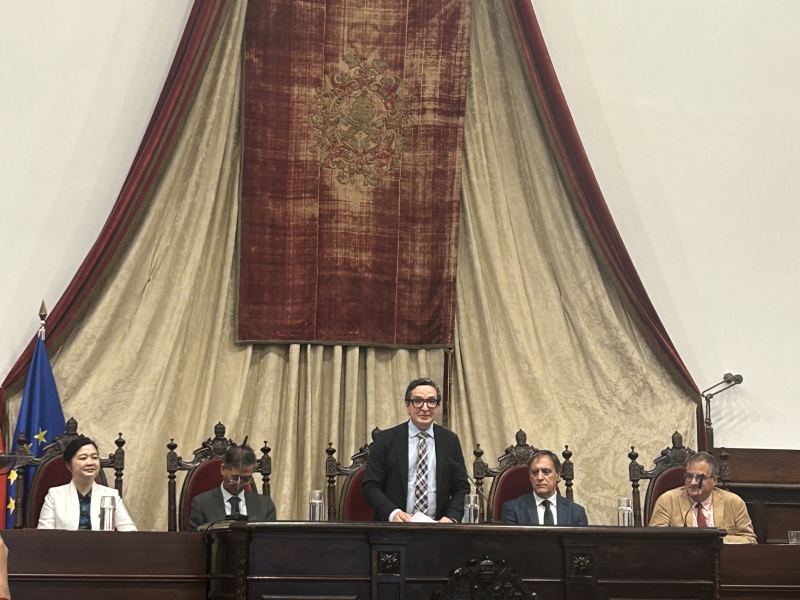
The Confucius Institute at the University of Salamanca was formally inaugurated following a collaborative unveiling by a distinguished group of dignitaries. University President Ricardo Rivero Gozalo, Chinese Ambassador Yao Jing, Mayor Carlos García Carbayo, Guizhou University Party Secretary Yang Wei, and University Vice President Sánchez jointly presided over the ceremony.
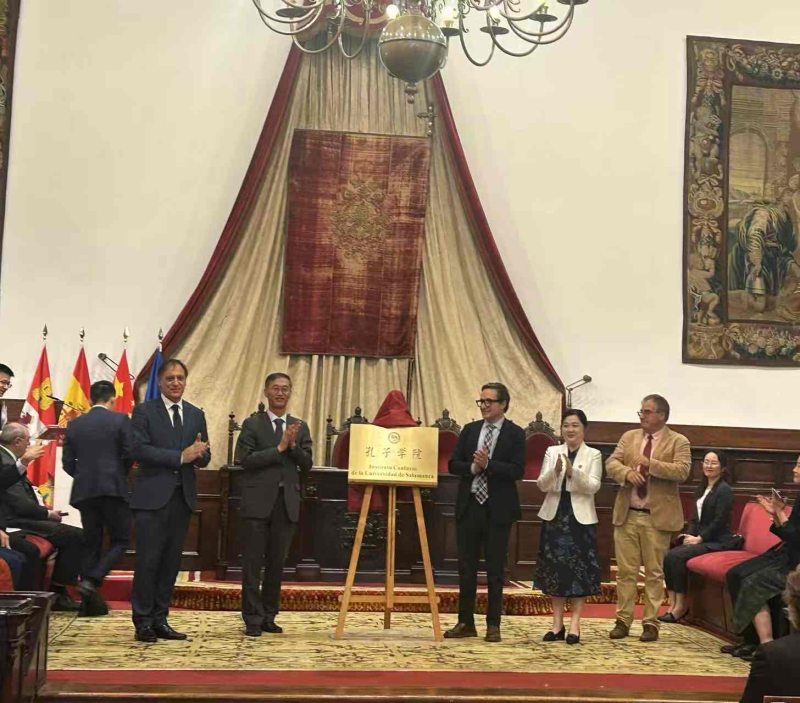
On May 29th, prior to its official unveiling, the Confucius Institute at the University of Salamanca convened its inaugural council meeting. Chinese and foreign council members engaged in a productive exchange of ideas regarding the Institute's operational framework and strategic priorities. A consensus was reached concerning the leveraging of both institutions' academic resources to facilitate enhanced collaboration across diverse disciplines and a shared commitment to fostering the Institute's future development.
The University of Salamanca, a venerable institution established in 1218, holds the distinction of being Spain's oldest university and the fourth oldest in Europe. Its eight-century history has cemented its reputation as the "Mother of Latin American Universities." Comprising ten teaching and research campuses, the university houses twenty-seven faculties and fifty-seven departments, with its Department of Modern Languages recognized globally for its academic excellence. Furthering its commitment to international collaboration, the University of Salamanca, in conjunction with Guizhou University, recently established a Confucius Institute, formally approved on June 6, 2024. This institute endeavors to promote cross-cultural understanding and academic exchange through Chinese language and cultural programs, thereby fostering stronger ties between the two universities in research and pedagogy.
Editor: Pang Aizhong
Chief Editor: Li Xufeng
Senior Editor: Ding Long
Translator: Tan Jing